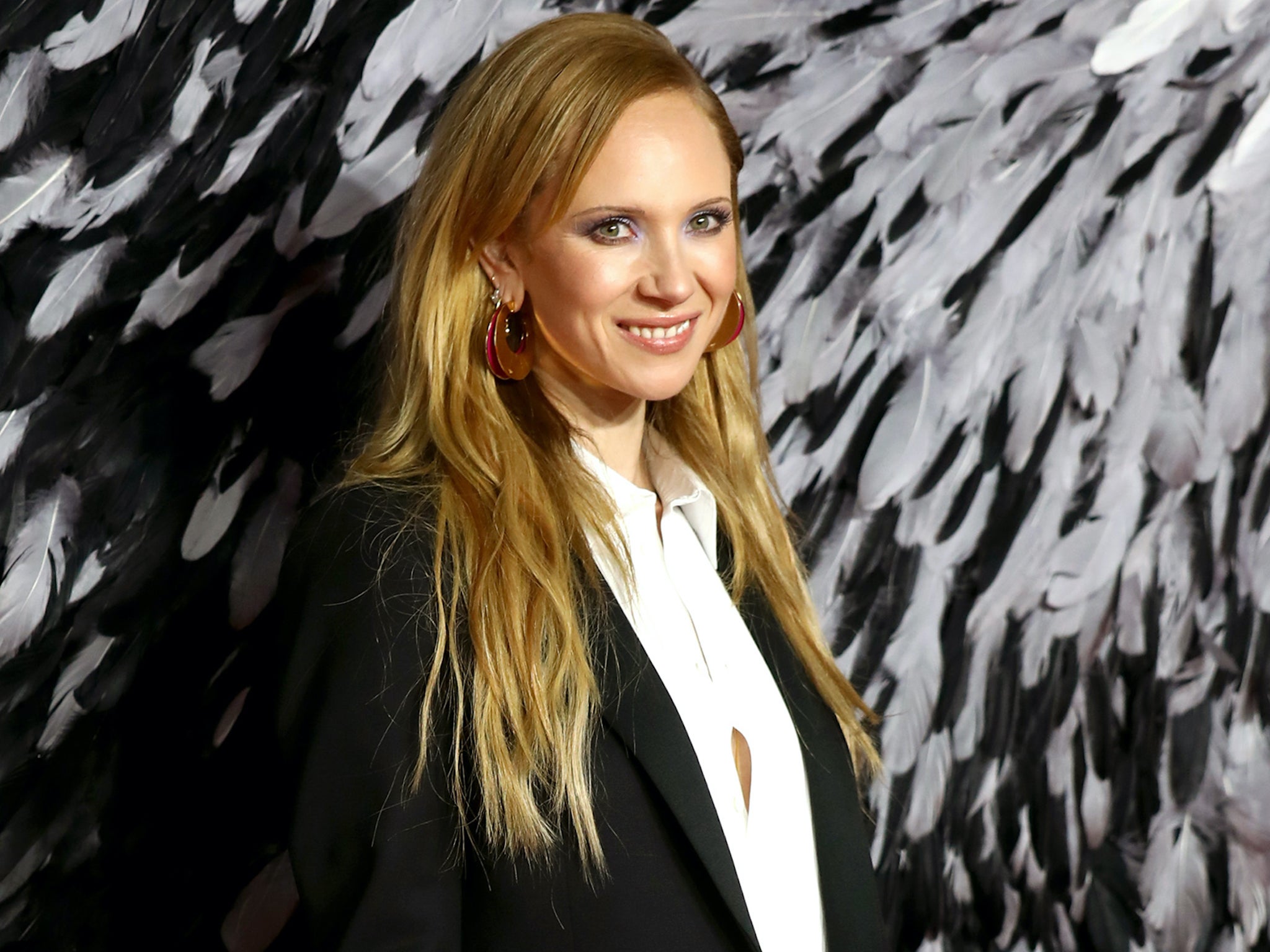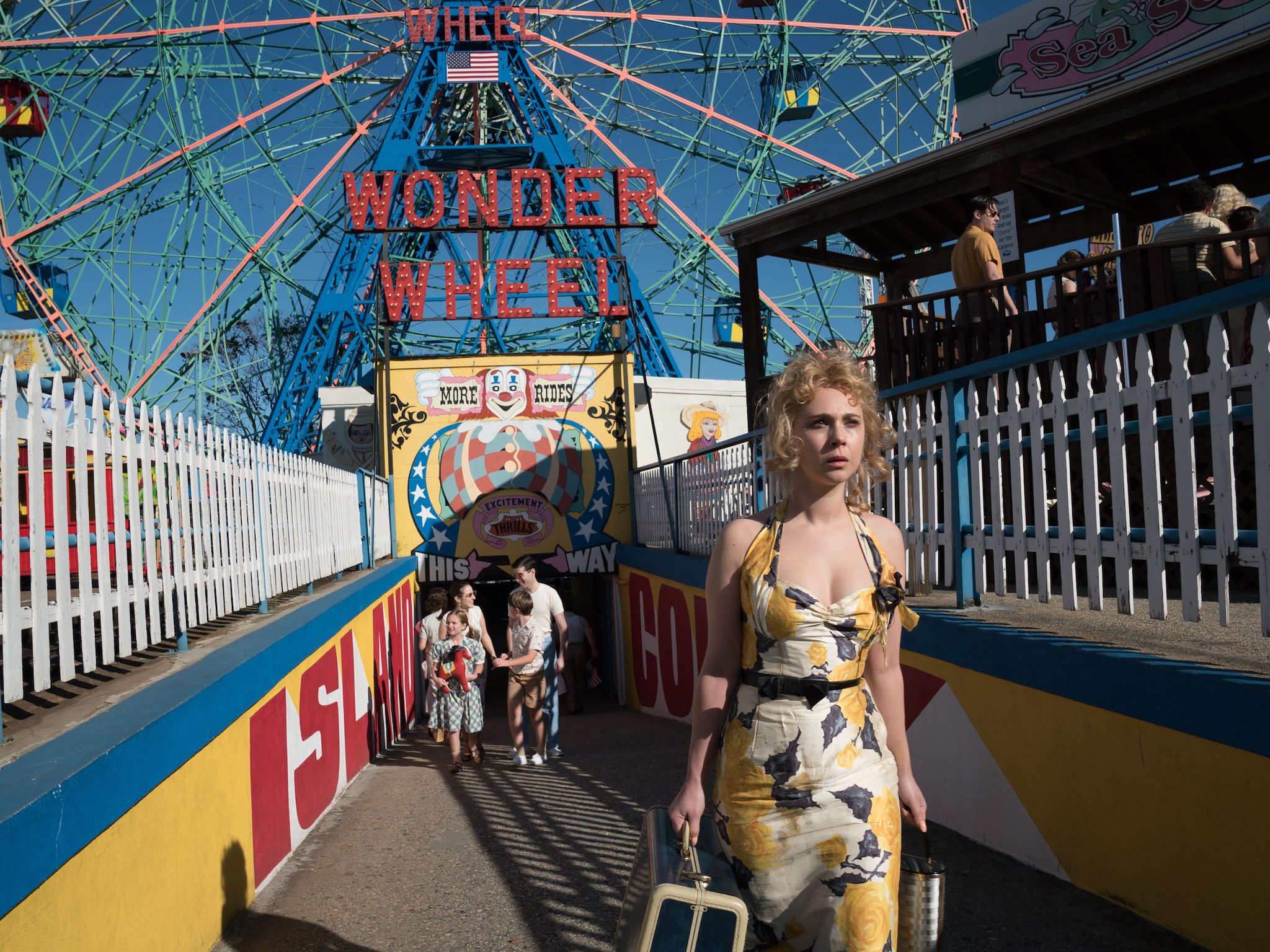Juno Temple: ‘Doing a sex scene is less terrifying than a scene where I’m giving up my child’
The actor plays a drug-addicted mother alongside Justin Timberlake in her new film Palmer. She talks to Alexandra Pollard about fearlessness, empathy, and why liking her job so much can be dangerous


Your support helps us to tell the story
From reproductive rights to climate change to Big Tech, The Independent is on the ground when the story is developing. Whether it's investigating the financials of Elon Musk's pro-Trump PAC or producing our latest documentary, 'The A Word', which shines a light on the American women fighting for reproductive rights, we know how important it is to parse out the facts from the messaging.
At such a critical moment in US history, we need reporters on the ground. Your donation allows us to keep sending journalists to speak to both sides of the story.
The Independent is trusted by Americans across the entire political spectrum. And unlike many other quality news outlets, we choose not to lock Americans out of our reporting and analysis with paywalls. We believe quality journalism should be available to everyone, paid for by those who can afford it.
Your support makes all the difference.I definitely have been penalised for taking my clothes off,” says Juno Temple, readjusting her top-knot. “And honestly, sorry for swearing, but f*** that.”
Back in 2013, the English actor had three films playing at the same Sundance Festival. In one, Afternoon Delight, she was a stripper turned live-in nanny. In another, Lovelace, she was the best friend of porn star Linda Lovelace. And in the third, Magic Magic, she was a naive Californian in Chile who suffers a psychotic episode. She happened to take her clothes off in all three. “I remember a reviewer being like, ‘Wow, she’s got her tits out in all of them’,” recalls the 31-year-old. “I don’t think that’s a beneficial thing to say. If you’re offended by the nudity, explain to me why. Not just like, ‘She’s got her boobs on screen again.’ Yeah, I do. So if that’s a problem, tell me why.”
For Temple – who rose to prominence in 2007’s Atonement, as a 15-year-old whose rape is pinned on the wrong man – nude scenes can give just as much of an insight into a character as anything. “In real life, there are moments when you take your clothes off and it comes with a flurry of confidence and wonder and exploration,” she says, “and there are moments where it makes you feel like you want to be swallowed whole by a giant crack in the earth. I think nudity can explore that on camera. I really do.”
Temple is in London, shooting season two of the endearing football comedy Ted Lasso. “It’s a very lovely thing to be doing right now, to be honest with you,” she says, “because it can get a bit dark at the moment.” With a cut-glass English accent that years of living in LA have done nothing to diminish, Temple is warm, unguarded and slightly frenetic company, frequently looking off to the side as answers tumble out like pennies from a slot machine. Everything behind her is pink: there’s a pink pair of lips mounted on the wall, a glowing pink orb, a pink wash basket, a pink table in the corner. Dressed in a black jumper, with several gold hoops in each ear, she looks a darn sight healthier than the character she’s here to discuss.

Her role in Palmer, the gradually disarming redemption drama now streaming on Apple TV+, is a small but crucial one. Justin Timberlake is Palmer, a former high-school football star newly released from prison. He finds himself the reluctant guardian of a sprightly seven-year-old called Sam when the boy's mother Shelly, played by Temple, skips town.
Just before she takes off, Shelly has loud, dispassionate sex with Palmer. Temple didn’t have an intimacy coordinator for that scene – she doesn’t tend to feel a need for them. “For me, what’s important is that you have a conversation with your co-star, with your director, and you all figure out privately what’s cool and what’s not,” she says. “I’ve worked with Justin before; he’s a friend of mine, and I feel very safe working with him. Actually, doing a sex scene is less terrifying than doing a scene where I have to give up my child.”
It is certainly an emotionally pummelling role. Temple renders Shelly as a sort of wounded animal, always twitching, sniffing, trembling. “I empathised with her so deeply,” she says. “My approach was that she was still a child herself, and she just is not equipped to be a mother. But she’s equipped to be a friend, so she and her son are really good friends. And she’s an addict and really losing a battle with addiction.”
Sam, meanwhile, spends his time watching princess shows, trying on lipstick and throwing imaginary tea parties. The film’s message, says Temple, is “love the skin you’re in and the brain you have and the heart that’s beating. All of it. Love it exactly as it is because you get one shot at it”.
!['I feel very safe working with [Timberlake]. Actually, doing a sex scene is less terrifying than doing a scene where I have to give up my child,' says Temple](https://static.independent.co.uk/2021/02/10/16/Palmer_Photo_0108.jpg)
But Sam is badly bullied, not only by his peers, but by some of their fathers, one of whom pins him down and smears makeup over his face. Mercifully, we don’t see that play out onscreen – we learn of it via Sam, who chokes out what happened between sobs. “There are certain pockets of the world,” says Temple, “where there is that feeling of: ‘I feel alone, I feel frightened, and I feel completely alone in my existence.’”

Watch Apple TV+ free for 7 days
New subscribers only. £8.99/mo. after free trial. Plan auto-renews until cancelled

Watch Apple TV+ free for 7 days
New subscribers only. £8.99/mo. after free trial. Plan auto-renews until cancelled
That’s where art comes in. “I wish I had the brains to go and get into politics or cure illnesses, but I don’t,” she says. “But I do think films can really make you feel less alone, or they can transport you to a place you’ve never been, or remind you of a place you’ve forgotten. They are this extraordinary porthole into different ways of living that means people empathise with people more. I hope.”
Temple has certainly run the gamut of human behaviour. In her teen years, she carved out a niche as a wild child, playing Cate Blanchett’s petulant daughter in Notes on a Scandal (2006), a dreadlocked “trustafarian” in St Trinians (2007), and an eccentric boarding school pupil in, well, Wild Child (2008). There is little that connects the films of her adult years, apart from the skittish, wide-eyed volatility she tends to embody onscreen. As well as taking on smaller roles in blockbusters such as The Dark Knight Rises (2012) and Maleficent (2014), she played a scheming Texan alongside Matthew McConaughey in the black comedy Killer Joe (2011) and Daniel Radcliffe’s murdered girlfriend Merrin in the bizarre comedy-horror Horns (2013). She spent her 25th birthday “completely naked, doing a pretty epic sex scene with Mick Jagger’s son” in the short-lived Martin Scorsese drama Vinyl, and just before turning 30, she played an ill-fated psychiatric patient in Steven Soderbergh’s underrated iPhone thriller Unsane (2018).
“I didn’t actually go to university, so I feel like every time I do a job, it’s like a tiny little university experience for me,” says Temple. Working with Kate Winslet was like going to Oxbridge. “I was about 14 when I watched Heavenly Creatures, and that was a game-changing performance for me. It was absolutely mind-blowing. And then I got to work with her, which was the coolest thing ever.”
Unfortunately, Winslet has since disowned the film they worked on. Wonder Wheel came out in 2017, three years after its director Woody Allen was accused by his adopted daughter Dylan Farrow of sexually abusing her as a child (the allegations, which he denies, were first made when Dylan was seven). “What the f*** was I doing,” said Winslet last year, “working with Woody Allen?” Does Temple share those regrets? “No,” she says, “I try not to regret things because I think that learning from each experience leads to another experience and to another experience.”
Other actors have learnt from her too. Last year, she starred in Little Birds, the psychedelic Sky Atlantic drama, as an American debutante full of wanderlust. Temple’s co-star Hugh Skinner said that watching her was “so f***ing liberating … she just got so into character and didn’t give a f***”. Fearlessness seems to be Temple’s modus operandi. Where does it come from? “Definitely partly my upbringing, for sure,” she says.

Temple’s was a bohemian childhood. Her father is the film director Julien Temple, her mother the producer Amanda Pirie; they named her Juno after an area of the Grand Canyon they visited while Pirie was pregnant. As a child, she went to the expensive, hippie boarding school Bedales, hung out with The Clash’s Joe Strummer and was babysat by Johnny Depp. “I was constantly learning about all different lives and all different people and all different rhythms,” she recalls, “and so I was always curious about that. Knowledge gives you the keys to life.”
She took that same ethos with her when she started acting. “There are moments that I find reality difficult, and I find living everyday life tough, and so I learn from a lot of my characters how to understand reality a bit better.” She gazes to the side for a moment. “I don’t know. Sometimes I feel like I like my job too much and it can be dangerous.” How so? “I don’t know. You then try and not live in reality at all. And I think it's important to see the beauty right in front of me.”
She’s not a method actor – “if I was, I’d be dead seven times over”, she says – “but I can’t help but have that happen a little bit on set. It can sometimes get a bit lonely, because you can get so wrapped up in another person’s life that you forget yours for a second. You abandon yourself.”
Mostly, though, she sees it as a sort of symbiosis. “I have a weird thing that I like to do,” she says, slowly, as if weighing up whether or not to tell me. “Every time I play a new character, I buy lingerie for her. It’s a power thing. It’s quite funny when you think about it – I’ve bought knickers for all the characters I’ve played. I like thinking about the bare bones of a character, and what would be underneath all the layers. You can’t help but bring a sprinkling of yourself to each part, and you can’t help but take a little bit of the part home with you forever.” She smiles. “It’s a beautiful exchange.”
Palmer is streaming on Apple TV+ now


Join our commenting forum
Join thought-provoking conversations, follow other Independent readers and see their replies
Comments